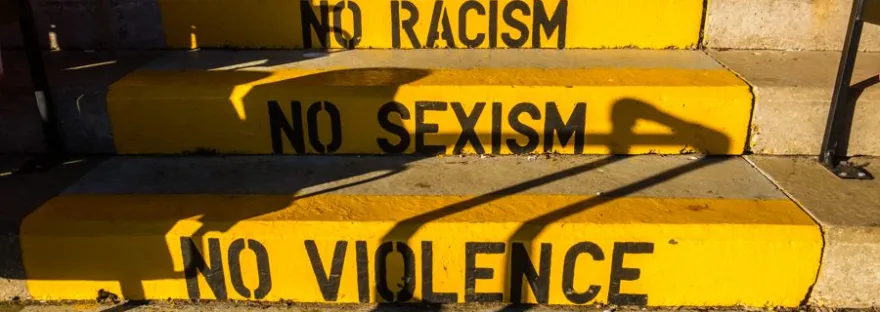Guest blog post from Isaac Gleave (@IsaacGleave), adapted from an article originally published in The Argus
Follow the red brick road and you’ll soon find it: a hidden treasure buried deep in Brighton’s vault. Nestled at the foot of a South Down slope, it’s the proverbial walk in the park for Whitehawk F.C.’s revellers who snake through East Brighton Park’s pathways to happen upon the colourful delights of the Enclosed Ground. For this is a club seemingly secluded from the rest of society, confined to its senses on the outer most limits of the city. Hold that moral compass up into the air, and soon it’ll guide you to where you need to be.
But it hasn’t always been like this. A county team for much of its relatively short history, it was in 2010 — 65 years after the club was founded — that they would first compete in the Isthmian League. And so, following promotions, relegations, Brighton City, Lincoln City, more relegations, Dagenham & Redbridge, Jimmy Dack and a pandemic, it leaves the club exactly where they started 12 years ago. Yet somewhere along this winding, jerking road the club’s identity was formed, and the progressiveness of a few hundred Ultras shone through the thick clouds that move with the harsh sea breeze.
For years Whitehawk has carried a notorious banner above its brow. A study by Park Life found that around 45% of local children in the area are in poverty, compared to 19% for the entire country. Noses turned at the name, not until those locked within Brighton’s borders greet it as one of their own will this be a place of growth and prosperity. Yet in its football club it harnesses just that: a place to shelter from intolerance and injustice, a place to take solace in its morals. ‘Racism, we say no. Sexism, we say no. Homophobia, we say no.’ Inscribed on its steps and sung from its stands, it will change your perception of football, your sense of what is just.
With the bitter chill of winter starting to inch deeper into the bones, on the tilted green grass Whitehawk continue to thrive. Beaten just once in the league all season, the arrival of Shaun Saunders as manager has seen this club similarly transformed on the pitch. Of the 26 goals scored in the league thus far, 19 have come on cherished home soil. Celebrations are a guarantee regardless of success, but since August and the arrival of a fresh, fluid squad the emphasis has finally transitioned away from the seats for the first time in years. The expectancy now as the red shirts emerge from the rattling tunnel is vast. The standard has been laid, nets continue to ripple, and the smiles spill out onto the streets of Brighton with each fleeting afternoon.
Spoken about purely in the local press, word of Whitehawk’s success will only spread if silverware is lifted. But in reaching the zenith it is games such as these that matter most in the sprint for salvation.
Hailed as the 12th man by players and coaches alike, the importance of the persistent noise behind the goal rises with the influx of home fixtures. Perhaps it is this swirling sound that blankets the blades of turf that give this side the edge on familiar surroundings. Whatever it may be, long may it last as the formidable attacking prowess this side consistently harnesses continues to reach new heights.
An outcasted club for much of its life shrouded in the shadows of its Premier League half-brother over the hill, there is life in this valley still. Here’s your local club, my good friend, make it count. And whilst the world’s eyes watch on through pixels and photos of a soulless wasteland that will soon pass[1], in Whitehawk there is a place where the hope ceases to fade, where football is played for its intentions, and where people will always come to feel at home. Soon Saturday will be upon us, and the quest to rekindle what is right in this world will be lit once again.
[1] This is a reference to the Qatar World Cup being held at the time the piece was originally published.
Image by JJ Waller, Licensed under Creative Commons
